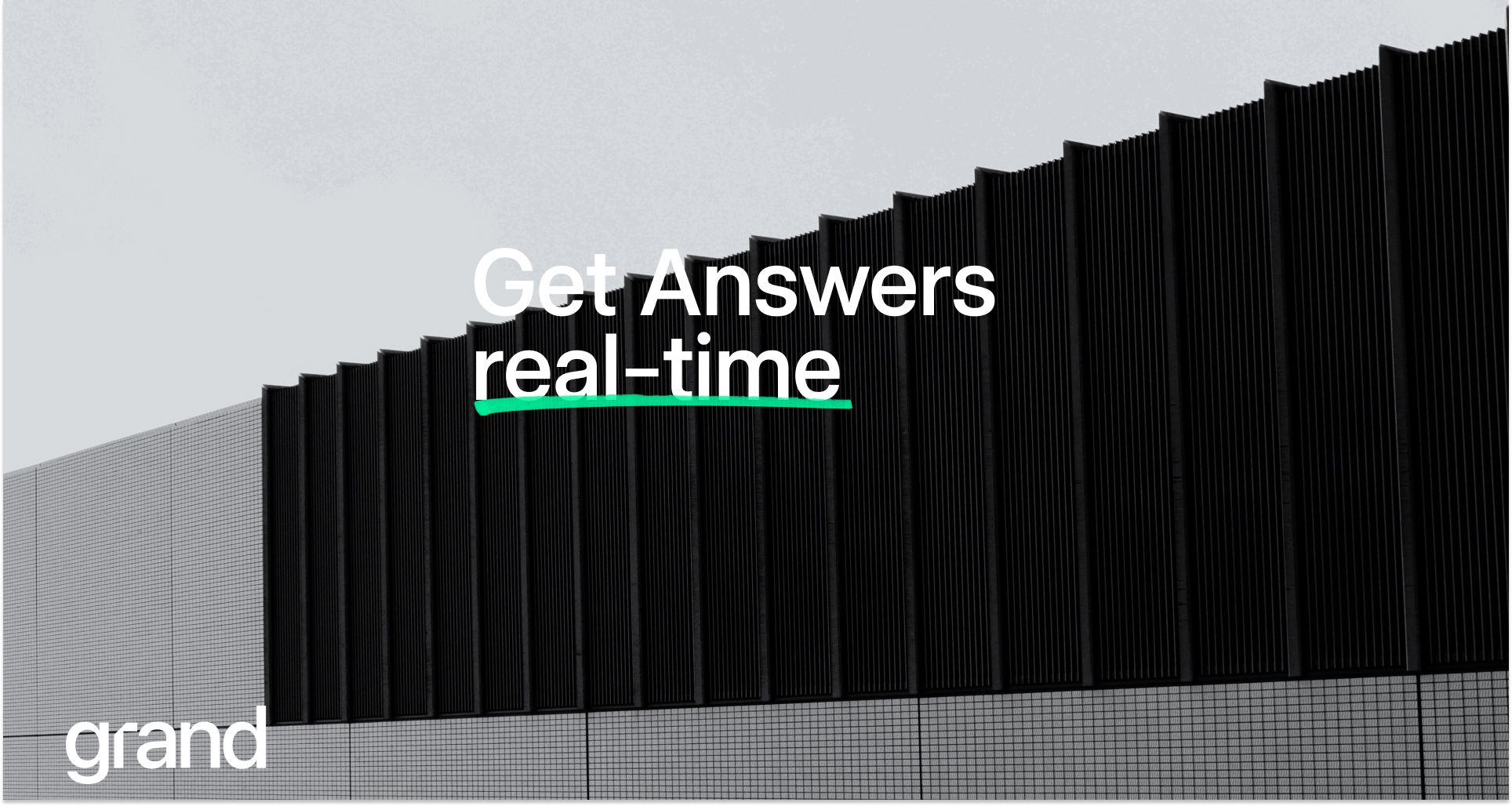How AI GRC Software Enhance Regulatory Change Management?
We discussed the integration of AI in regulatory change management, focusing on its impact, challenges, benefits, and future prospects. By harnessing AI GRC software, businesses can navigate the complexities of evolving regulations more efficiently.

Grand “Answer”:
AI GRC (Governance, Risk and Compliance) software enhances regulatory change management by proactively identifying emerging regulatory trends and opportunities[2]. Leveraging this software, organizations can design compliance strategies that are in sync with their business goals [1]. This not only ensures regulatory adherence but also aids in business success [1][2]. By utilizing AI, GRC programs can efficiently monitor changes, predict potential risks, and offer appropriate responses to regulatory changes, thus making the process more streamlined and less prone to human error. This proactive approach allows organizations to stay ahead of the regulatory curve and adapt to changes in a timely and efficient manner [1][2].
Source
[1]

[2]

The Age of AI and Regulatory Change Management
In today's business ecosystem, technologies like Artificial Intelligence (AI) and Machine Learning (ML) are becoming integral to operational efficiency. A significant area witnessing this transformative power is regulatory change management. Gone are the days when compliance professionals relied solely on manual evaluations and interpretations of complex regulatory changes. The dawn of AI has ushered in an era where these evaluations can be automated, accurate, and agile.
When we talk about regulatory change management, we're delving into the systematic tracking, review, and implementation of regulatory changes within an industry, ensuring that organizations remain compliant with evolving laws and standards. With the continuous flux of regulatory updates, manual oversight can be prone to errors and delays. This is where AI comes to the rescue, promising businesses a streamlined, error-free approach to understanding and adapting to these changes.
Regulatory Change Management: The Pillar of Compliance
For any organization, whether a startup venturing into the local market or a multinational giant with global outreach, compliance is the backbone. The last two decades have witnessed a surge in regulations across sectors. Be it finance, healthcare, or manufacturing, regulatory bodies are intensifying their scrutiny and broadening their mandates. In such a landscape, regulatory change management emerges as the anchor, ensuring that businesses can navigate the regulatory maze effectively.
Moreover, with stakeholder trust and brand reputation on the line, businesses cannot afford to falter on compliance. A regulatory misstep can result in not only financial repercussions but also damage to a brand's image. In this context, integrating AI into regulatory processes becomes not just a strategic move but a necessity.
Advantages of AI and ML in Regulatory Change Management
The integration of AI into regulatory change management is not just another technological evolution; it's a revolution in how businesses view and handle compliance. Here's a deeper dive into its myriad benefits:
- Precision Over Error: Human oversight, no matter how meticulous, is prone to errors. These errors can range from minor oversights to significant misinterpretations, all of which can have cascading impacts on compliance. AI, with its algorithms designed to detect and analyze patterns, significantly minimizes these errors, ensuring a high level of precision in regulatory interpretation.
- Global Regulatory Surveillance: In our globalized world, businesses often operate across multiple jurisdictions. Keeping a tab on every regional regulatory change manually is not just tedious but nearly impossible. AI systems, however, can monitor and analyze regulatory changes from multiple sources worldwide, ensuring businesses are always in the know.
- Timely Alerts: The digital age demands real-time responses. With AI, businesses don't just receive information; they receive timely alerts. The moment a regulatory change is detected, AI systems can send out notifications, ensuring that compliance teams are always a step ahead.
- Personalised Compliance Strategy: One size doesn't fit all, especially in compliance. Different businesses have different needs, risks, and operational structures. ML, a subset of AI, can learn from past regulatory challenges faced by a business and adapt. This means the AI system can provide personalized recommendations and solutions tailored to a business's unique compliance needs.
- Boosting Efficiency: Time is of the essence in the corporate world. With AI automating routine tasks and evaluations in regulatory change management, human resources are freed up. This allows compliance professionals to focus on strategic planning, risk assessments, and other complex tasks that require human judgment.
In the realm of regulatory change management, AI and ML emerge as powerful allies. They empower businesses to remain compliant in an efficient, precise, and personalized manner, heralding a new era of compliance strategy.

The Rise of AI GRC Software in Modern Enterprises
Governance, Risk, and Compliance (GRC) software has always been at the core of large-scale enterprise operations. In recent years, the emergence of AI GRC software represents a tectonic shift in how businesses perceive and manage their governance and compliance functions. As the business world becomes more digitized and interconnected, the risks and challenges associated with compliance multiply.
AI GRC software is designed to keep up with this pace. By harnessing the power of Artificial Intelligence, these platforms can predict, detect, and respond to compliance risks with unmatched efficiency and accuracy.
Why AI-Driven GRC?
- Data-Driven Insights: In an age where data is termed the 'new oil,' AI GRC platforms can analyze vast amounts of data in seconds, providing businesses with real-time insights into potential compliance risks and mitigation strategies.
- Proactive Risk Management: Instead of a reactive approach where businesses respond to compliance breaches, AI-powered GRC software offers a proactive model. By predicting potential breaches based on data patterns, businesses can implement preventive measures in advance.
- Unified Compliance View: With the integration of AI, GRC platforms can offer a unified view of an enterprise's compliance status. This means stakeholders, from board members to operational teams, can be on the same page regarding compliance metrics and strategies.
In essence, AI GRC software isn't just another tool in a company's arsenal; it's a strategic asset driving efficient governance and compliance in modern enterprises.
Navigating the Complexities of AI in Governance
While the benefits of integrating AI into regulatory change management and GRC are evident, it's not without its challenges. Here are some considerations businesses must keep in mind:
- Data Privacy and Security: AI systems, including AI GRC software, thrive on data. With data breaches becoming increasingly common, ensuring the security and privacy of this data is paramount. Regulatory bodies worldwide are rolling out stringent data protection regulations, and businesses must ensure their AI tools comply.
- Bias in Algorithms: AI models are only as good as the data they're trained on. There's a growing concern about biases in AI algorithms, which can lead to skewed results and decisions. Regular audits and refining of these models are crucial to ensure unbiased and accurate outcomes.
- Dependence on Technology: Over-reliance on AI can create a scenario where human judgment is sidelined. While AI can process information and make predictions, the nuanced understanding and decision-making that humans bring to the table remain irreplaceable.
- Regulatory Landscape: Just as businesses are evolving with AI, so is the regulatory landscape. New regulations around AI ethics, usage, and implications are being formulated. Businesses must be proactive in understanding and adhering to these emerging guidelines.
While the journey of integrating AI into regulatory functions has its challenges, with a balanced approach and continuous refinement, businesses can harness its potential to the fullest.
Future Outlook: AI-driven Regulatory Change Management
As businesses move forward, the power of prediction is what sets AI-driven tools apart. The ability to forecast regulatory changes, even before they come into the limelight, is a game-changer. AI GRC software, with its advanced algorithms, can analyze global trends, news, discussions, and other data points to provide businesses with potential upcoming changes in the regulatory landscape.
Adapting to a Dynamic Regulatory Environment
With globalization, the complexity of regulatory environments across different jurisdictions is increasing. Businesses need to be agile, adapting to new regulations while ensuring they remain compliant with existing ones. The integration of AI into regulatory change management is poised to make this adaptability smoother. As AI systems continue to learn and evolve, their accuracy in predicting and responding to changes only gets better.
The future is not about AI replacing humans in regulatory roles, but rather, a harmonious collaboration. While AI provides data-driven insights, predictions, and automated workflows, human experts analyze these insights in context, providing a nuanced understanding and strategic direction. This symbiotic relationship ensures that businesses remain ahead of the curve in regulatory compliance.
As AI GRC software solutions mature, expect to see more industry-specific tools. Whether it's finance, healthcare, or e-commerce, AI-driven regulatory tools will offer customized solutions catering to the unique challenges and requirements of each sector.
The digital transformation wave, powered by Artificial Intelligence, is reshaping industries. In the realm of regulatory compliance and governance, the impact is profound. AI GRC software and AI-driven regulatory change management tools are not just technological upgrades; they're paradigm shifts. They offer businesses the precision, foresight, and agility needed in today's dynamic regulatory environment.
However, like any tool, its effectiveness is determined by its usage. It's crucial for businesses to understand the strengths and limitations of AI, ensuring a balanced approach where technology and human expertise coexist. Continuous training, refining of AI models, and staying updated with the evolving regulatory landscape are essential.
In the grand scheme of things, the integration of AI into regulatory functions signifies a broader trend. It's a testament to the ongoing evolution of business processes, driven by technology. Those who embrace this change, understanding its intricacies and potential, are set to lead in the modern business world.
Grand Answer: Your AI Partner
Designed to support compliance officers, legal counsels, and other professionals responsible for adhering to regulatory standards, Grand Answer aims to facilitate an efficient and straightforward compliance process.
Reduce your
compliance risks



